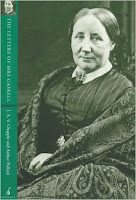OMG. As I was reading this book, I kept wanting to turn to the back cover, to the author’s photo,
and yell “you’re a dirty old man!” I’m certainly no prude, but the characters in Robert Goolrick’s A Reliable Wife were just a tad too preoccupied with sex, particularly the sex they aren’t getting and that everyone else supposedly is.
Warning, this review contains some serious spoilers. I’ve been lavish with the spoilers only because I don’t think the book is worth reading, and thus this review will save you several hours of your life that I myself will never get back. Indeed this book has reminded me just what it is I always disliked about book clubs: reading selection.
Wealthy tycoon Ralph Truitt has advertised for a wife. It is winter of 1907 when the novel opens and Truitt is standing on a cold train station platform awaiting his “honest, reliable” wife-to-be, Catherine Land. When she arrives, Catherine in no way resembles the picture enclosed in their exchange of letters. And so it begins. Both Ralph and Catherine have pasts they desperately want to forget. Orphaned at a young age, Catherine turned to the oldest known profession to survive. She has come to Truitt, Wisconsin to marry the town patriarch with one goal: to become a rich widow and entice her feckless, faithless lover back into her arms.
Ralph has his own disturbing past filled with decadence and depravity in the whore-houses of Europe. He returned to Wisconsin only after his father’s death, to take up the reins of the Truitt empire, bringing his Italian Countess bride along with him. Emilia did not adjust to life in cold, forlorn Wisconsin however, and soon lived her own life of dissipation, taking lovers under her husband’s roof.
A vengeful, cuckolded Truitt manages to drive away both wife and son, and now years later, having lived life as a monk in reparation for past sins, he marries deceitful Catherine Land and begs she travel to St Louis to bring back his prodigal son whom Pinkerton detectives have finally tracked down.
Catherine does as she is bid, and lo and behold, the prodigal son turns out to be the feckless, faithless lover. Who didn’t see that one coming? No surprise, Catherine and lover have plotted Truitt’s demise, but once married and living respectably where no one knows her past Catherine has experienced a change of heart. She finally has the life she’s always wanted and can no longer kill an innocent man.
The story is a good one, filled with many soap opera-ish twists and turns, and Goolrick’s language is quite beautiful and lyrical, but much of the above is told in backstory, and I think it would have been a much stronger novel had Goolrick let events play out in an epic saga rather than encapsulating years of Ralph or Catherine’s life in a few explanatory paragraphs. For that reason, I struggled to enjoy the book. I became far too tired of Goolrick’s tell, don’t show writing style.
At the end of the novel Goolrick mentions a book of photographs he discovered in 1973 that told the story of the people of a small Wisconsin town in the early 1900s. For Goolrick, this book profoundly changed his life. In A Reliable Wife, he’s attempted to put words to those photographs by giving us a town full of depraved characters and unhappy events. It’s an interesting concept, but falls flat when Goolrick’s novel begins to read as a series of photograph descriptions instead of a cohesive story about real, living and breathing, individuals. Goolrick may have received critical acclaim with his first book, the biting family memoir The End of the World as we Know it, but his follow-up A Reliable Wife is an overly indulgent second book that probably should have stayed at the bottom of a desk drawer. Had it not been for this being a Windsor Book Club selection, I would have given it a pass.
What the Windsor Book Club members had to say:
Well once again the cheese stands alone. I was the only one of the group who didn’t like the book. Everyone else enjoyed the plot twists (which I thought were obvious) and thought it was a very interesting story. The highlight of the evening for everyone was being joined by the author via speakerphone (and no, I did not call him a dirty old man in person ;p). It was fun hearing the author’s perspective of the characters and the personal experiences that led him to write such a book. For Goolrick, who was abused as a child, the characters in A Reliable Wife all suffered some form of abuse in childhood that impacted the paths they took and the adults they became. Some overcome and find redemption and renewal, while others sink deeper into dissipation. Not everyone can be saved, after all. An interesting point that I missed on first reading the book is that although there is much fixation with sex by the characters, what they really desire and are missing from their lives is affection and companionship. It’s more the desire to return to the innocence of childhood which they never knew then to exploit themselves further with physical sexuality. So perhaps there are a few redeeming qualities that warrant another look at the book.
Till next time, happy reading!
L J







